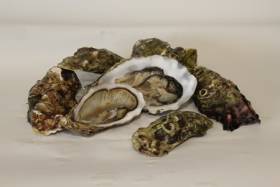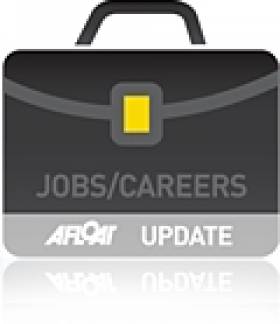Displaying items by tag: Food Safety
New Shellfish Safety Reporting Website Goes Live
#Shellfish - The Marine Institute, as the EU designated national reference laboratory for shellfish toxins and shellfish microbiology in Ireland, has launched a new shellfish safety website.
Incorporating a range of user friendly info-graphics and maps, the site will provide information on recent trends analysis as well as current status of shellfish production areas.
The new website has been launched to provide regulatory authorities, shellfish producers, processors, hospitality industry, public health officials and the general public with the most up-to-date information available.
The Marine Institute carries out a year-round national testing programme to ensure that all shellfish are safe before being placed on the market for human consumption.
“With over 100 coastal aquaculture production areas farming a variety of shellfish species, and many more offshore areas being fished commercially, it is essential that an efficient and accurate method of communicating these test results is in place,” said Joe Silke, manager of shellfish safety for the Marine Institute.
The open status of shellfish production areas is necessary before the product can be placed on the market. This open status depends on clear tests being obtained for a comprehensive range of shellfish toxins, and in addition, harmful algal species from water samples must be tested on an ongoing basis. In addition, microbiological classification status is assigned on the basis of ongoing testing.
“Placing shellfish on the market requires speedy testing and reporting laboratory results. The Institute has strived towards providing state of the art processes and this new website will provide current status and a range of extra information that was not previously online,” added Silke.
All shellfish safety data are continuously compiled on databases at the Marine Institute and are essential to assign the appropriate ongoing status to the shellfish production areas.
The new website, the first phase of which is now available online, will feature new information such as the progress of sample analysis through the lab, recent trends in toxin and harmful algal concentrations, and maps to indicate the national trends.
Further features will be rolled out in the coming months.
Opportunity For a Director With The Marine Institute
#Jobs - The Marine Institute is seeking applicants for the position of Director of Marine Environment & Food Safety Services.
The director will lead an experienced team responsible for the delivery of a number of critical functions in support of seafood safety, fish health and the protection of the marine environment.
The successful candidate will work closely with Government departments, external parties and key stakeholders in the effective management of scientific services and provision of policy advice.
The director will also provide strategic direction in the targeting and management of competitive research projects funded nationally and internationally.
Candidates will have successfully managed programmes, people and resources at a senior and strategic level. You will be able to demonstrate relevant experience and qualifications as detailed in the job specification to include a primary degree complemented by at least seven years post-qualification work experience.
A detailed job description can be found at the Marine Institute website HERE. The closing date for receipt of applications is 5.30pm on Tuesday 5 February 2013.
The Marine Institute is an equal opportunities employer.































































